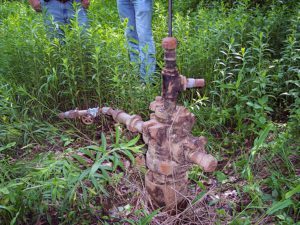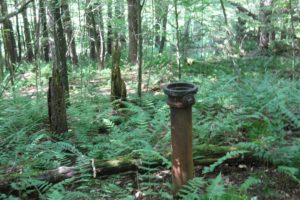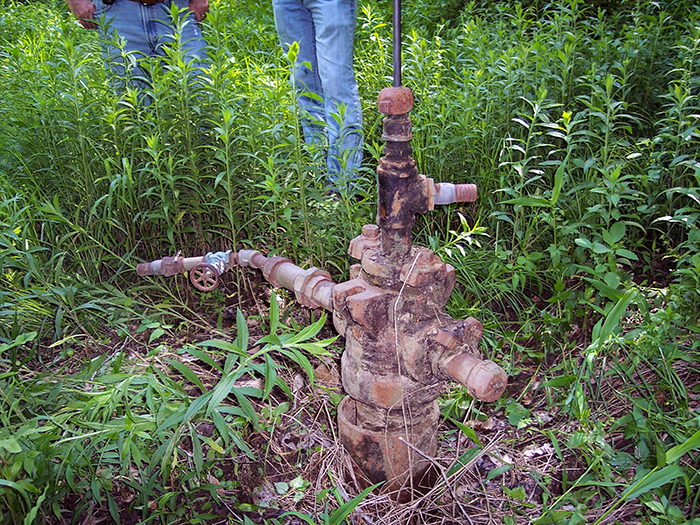
PENNSYLVANIA (April 22, 2024) – Last week, the federal government finalized a significant rule that increases minimum bonding amounts from $10,000 to $150,000 per oil and gas lease on federal land. Well bond amounts are the money that drilling companies have to put aside for eventual cleanup and plugging before being allowed to drill a new well. However, when bond amounts are less than the actual cost of plugging, taxpayers are left responsible for cleanup costs when companies go out of business and abandon their well. With over 130,000 documented orphaned wells in the United States polluting the environment and harming community health—and new wells being drilled every day without adequate bonding—this increase was long overdue.
“In raising federal lease bond amounts to reflect actual cleanup costs, the federal government is taking an important step to protect both taxpayers and the environment,” said Alex Bomstein, Executive Director of the Clean Air Council. “But while the rest of the country moves forward, Pennsylvania has regressed. In 2022, the Pennsylvania legislature passed Act 96, which capped the bond amount for conventional wells at a pittance of $2,500 per well, far below the actual cost. To protect Pennsylvanians, the Council and our partners are pursuing a joint lawsuit asking the court to rule Act 96 unconstitutional under the Environmental Rights Amendment. The federal government’s decision this month underscores how Pennsylvania’s well bonding system is broken and sacrifices community health and taxpayer dollars.”
“In updating its bonding amount, BLM is acknowledging that the current amount established more than 60 years ago was insufficient to cover the costs of cleaning up abandoned wells. This will save taxpayers from the burden of reclaiming wells after oil and gas companies neglect to clean up their polluting mess. This change reflects the reality of how expensive it is to protect people’s health and the environment from abandoned wells. We’re just asking Pennsylvania leaders to reach the same commonsense conclusions,” said Kelsey Krepps, Senior Field Organizer at Sierra Club.

HARRISBURG, PA [August 23, 2023] — Today, PennFuture, the Sierra Club, Clean Air Council, Protect Penn-Trafford, and Earthworks filed a joint lawsuit against the Commonwealth of Pennsylvania, including Governor Josh Shapiro and the General Assembly, challenging the constitutionality of a law that prevents the Commonwealth from protecting communities from the harm caused by abandoned methane wells.
Thousands of abandoned, unplugged wells in Pennsylvania leak methane and other harmful chemicals into the air and water, harming public health and worsening the climate crisis. They mar communities, reduce property values, and depress the local tax base. They are also at risk of explosion.
The Commonwealth has the ability to require oil and gas companies to pay a bond to ensure that these wells don’t go abandoned and unplugged. But in 2022, the Pennsylvania legislature passed Act 96, which removed the Pennsylvania Environmental Quality Board (EQB)’s authority to adjust well bonding amounts and capped the amount for conventional wells at just $2,500 per well.
“When it passed Act 96, the Pennsylvania legislature tied the hands of regulators, blocking them from making common-sense changes to bonding requirements that would speed up plugging of these wells,” said Kelsey Krepps, Sierra Club’s Senior Field Organizer. “This lawsuit asks the court to rule Act 96 unconstitutional under the Environmental Rights Amendment, clearing the way for regulators to adopt policies that keep cleanup costs where they belong: with the operators who profit from these wells, not the communities who have to live with ongoing pollution from abandoned wells.”
Well bond amounts — the money drilling companies have to put aside for cleanup and plugging before being allowed to drill a new well — no longer cover the costs of closing a well, which means if an oil or gas company goes out of business and abandons their wells, the cost of plugging those wells falls to Pennsylvania taxpayers.
“We’d like to see the well bonding amounts reflect the actual cost of well plugging to ensure there is no financial incentive for drillers to abandon their wells and leave taxpayers on the hook,” said PennFuture Senior Attorney Jessica O’Neill. “Sufficient bonding amounts are necessary to protect community and environmental health, as well as local economies, from the pollution that stems from abandoned and uncapped non-producing conventional gas wells.”
The Sierra Club commissioned a report by Dr. Jeremy Weber of the University of Pittsburgh to investigate the bonding amounts for well plugging and the regulatory recommendations that would influence the requests in the two rulemaking petitions. The published 2021 report found that plugging conventional wells costs at least $38,000 per well, 900% more than the General Assembly’s cap.
“If you or I were to dirty someone else’s property, the law would hold us accountable,” said Joseph Minott, Clean Air Council Executive Director and Chief Counsel. “Yet Pennsylvania’s Legislature passed a law to give gas and oil drillers a pass for doing the same thing. That’s not just wrong; it’s unconstitutional.”
“Oil and gas companies will continue to abandon wells recklessly and pollute Pennsylvania communities until our state government requires them to set aside adequate funds to clean up their mess,” said Melissa Ostroff, Earthworks Pennsylvania Policy and Field Advocate. “Current bonding requirements do not protect Pennsylvanians. The rights protected by the Pennsylvania Constitution empower and obligate the Commonwealth to prevent bad operators from walking away from the harmful pollution they leave behind.”
“The Pennsylvania Constitution charges our government with protecting our clean air and water,” said Gillian Graber, Executive Director of Protect PT. “But since they are falling short, we must hold them accountable.”
Carbon Tracker’s Asset Retirement Obligations Portal estimates that it would cost $15 billion to plug all the orphan and abandoned gas wells in Pennsylvania. But the state currently has only
$47.2 million in bonding available to plug these wells.

